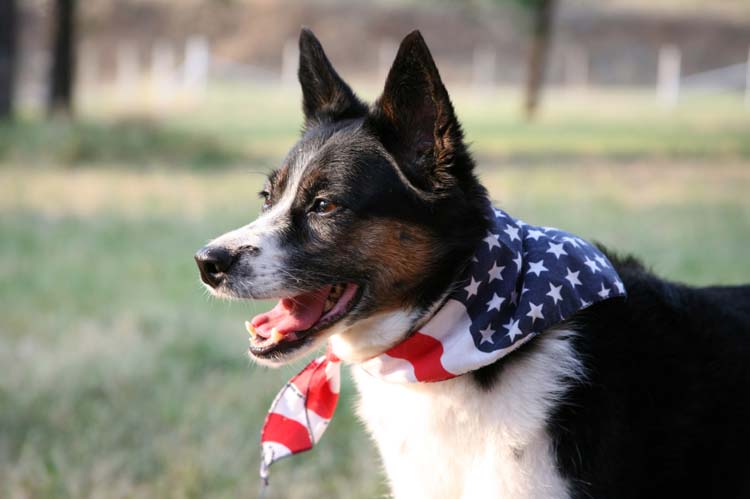5 Tips to Keep Your Pets Safe This 4th of July
Keep Pets Safe this 4th of July. For Americans, Independence Day is a time for celebration and reflection. This is especially a time to honor veterans and active duty soldiers who have paid and continue to pay the ultimate price for Americans to remain free.
However, every 4th of July thousands of pets are scared away from their homes by the fireworks. Many are lost and most end up in shelters never to be claimed by their original owners.
Keep pet safety on your mind, please be sure that we take extra precautions and planning around our Independence Day. Our pets tend to be fearful of fireworks and loud bangs. To keep your home and your pets safety a top priority on the upcoming holiday to do list, we have outlined 5 tips to pet safety on the 4th of July.
With the holiday fast approaching, Animal Behavior College (ABC) encourages pet owners to prepare now and take extra precautions to ensure they protect and keep their four-legged friends safe and secure.
4th of July Pet Safety Tips
Prepare in Advance. Make plans in advance to ensure pets are microchipped with current contact information and are wearing a secure collar with appropriate identification tags. Tags should include: your name, a current phone number (preferably your mobile number) and the name and contact information of the microchip company. This will prove helpful in locating your pet in the event he becomes lost or manages to escape.
If you know fireworks panic your pet, ask your vet staff about prescribing anxiety medication, which may help calm her fears.
Keep Your Pet Comfortable and Inside Your Home. Observance activities can overexcite your pet, while festive foods and treats meant for humans can harm your pet’s health. If possible, safely secure your pet away from the soiree. Be sure to communicate clear instructions to guests not to feed your pet, as doing so could cause inflammation of a digestive gland and can be very painful and serious. Alcohol is toxic to dogs and cats. Never leave unattended alcoholic beverages within their reach.
Watch Your Pet Around Children. Some dogs have difficulties interacting with children. They become anxious, stressed and exhibit verbal behaviors and actions such as growling and biting. To avoid negative situations and signs of trouble, closely monitor the interaction between the dog and child. If the dog ignores your command and becomes too aggressive, move him to a secure area or crate.
Hire a Pet Sitter. With an abundance of activities and guests to tend, hiring a pet sitter is an option. Pet sitters adhere to your pet’s routine, provide exercise and walks, administer water and feedings and spend quality time. This personalized care not only relieves owners of guilt and worry, but also gives them an opportunity to relax and fully enjoy their guest and festivities.
Move Pet to a Quiet, Soothing Area. If a pet sitter is not an option, consider moving your pet to a safe place such as a crate, quiet room or escape-proof part of the house. Be sure to check occasionally to ensure there is plenty of water. The center of your home is a great place to allow your pet to feel safe and secure. If anxiety for your pet is too much during fireworks, consider ordering them a Thundershirt to have on-hand for the holiday festivities.
No Fireworks for Fido. For dogs, fireworks and reverberations leave them feeling agitated, startled and stressed. Keep dogs away from fireworks displays and noisy celebrations. Instead, create a peaceful environment by blocking outside sights and sounds, closing blinds and curtains, leaving on the radio or TV and providing their favorite toy or blanket.
Lastly, should your dog get scared and escape, contact your local animal shelter and animal control agency right away.
Animal Behavior College offers three certifications: Dog Obedience Program (DOP), Grooming Instruction Program (GIP) and Veterinary Assistant Program. For more information about Animal Behavior College, visit our website at www.AnimalBehaviorCollege.com.






